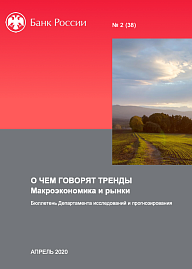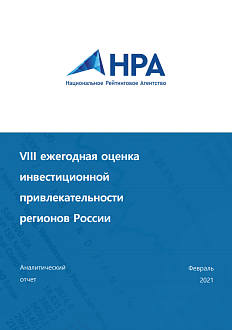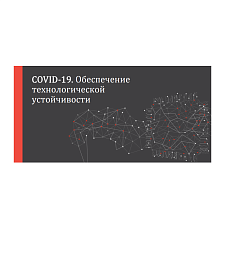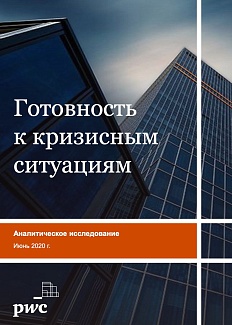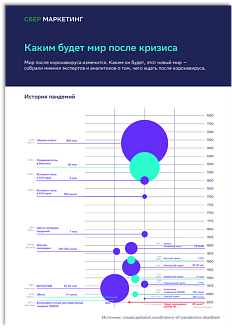This issue of the Research and Forecasting Department Bulletin assesses the state of the financial market during the pandemic. Special consideration is given to monetary policy in the current conditions. Also, the bulletin provides forecasts concerning post-quarantine economic recovery.
The Roscongress Foundation presents the salient points of the publication accompanied by fragments of broadcasts of relevant panel discussions from the business programme of international events held by the Roscongress Foundation.
Following the expected acceleration, inflation is set to stabilise in 2021, thanks to, among other things, monetary policy.
Inflation rose to 2.5% in March after hitting a low of 2.3% in February, driven by short-term pro-inflationary factors coupled with gradually mounting inflationary pressure in response to fiscal stimulus and monetary loosening in 2019.
A substantial rouble weakening coupled with a one-off spike in demand for some nonperishable goods temporarily pushed overall consumer price inflation up despite a drop in demand for other goods and services.
Following the expected acceleration, inflation is set to stabilise close to the target in 2021, thanks to, among other things, monetary policy. The expected partial rebound of oil prices and a moderate consumer demand form an overall disinflationary environment on the medium-term horizon.
The Russian economy has entered the period of turbulence triggered by the coronavirus pandemic, the onset of global recession, and the oil price slump, with fairly adequate reserves of strength.
The Russian economy has entered the period of turbulence triggered by the coronavirus pandemic, the onset of global recession, and the oil price slump, with fairly adequate reserves of strength.
A decline in external demand accompanied by a fall in prices of Russian exports accelerated dramatically in the first quarter of 2020. Meanwhile, Russia’s domestic demand enjoyed an upward trend in January—February: household consumption was on the rise, helped by a real wage growth acceleration, and the stepped-up budget spending had a positive effect on overall demand in the economy.
At the same time, March saw internal constraints on business activity and consumption emerge in Russia as the coronavirus pandemic broke out. The leading indicators suggest that this has already brought about a temporary output contraction and worsening of consumer sentiment in the Russian economy as the global economy was sliding into a recession.
The extension of the so-called «days-off» in Russia until the end of April is set to have a restraining effect on economic activity in the short term. This measure is, however, vital to containing the spread of the coronavirus.
The negative effects of the temporary output and consumption decline result in a dramatic but transient economic activity weakening.
The depth and duration of the downturn are hard to assess accurately at the moment, since this in large part depends on how the situation with the pandemic will unfold and what action many countries’ governments will take to curb the spread of the virus. Given the massive support from governments and central banks to their respective economies, one can assume that after the pandemic has been curtailed, the recovery of the Russian and global economies may be fairly fast.
The baseline scenario assumes that the main blow to the global economy will be dealt in the first half of 2020. The most acute phase of the coronavirus spread impact on the global economy may last about two quarters. Hence, under a moderately optimistic scenario, global economic recovery can be expected to start as early as the third quarter, helped by deferred consumption and accelerated output growth to replenish inventories and restore a normal pace of product deliveries to customers.
From the perspective of a cross-country analysis, experts believe that, all other things being equal, the potentially negative impact of the coronavirus can be alleviated by, above all, the degree of preparedness for combatting the epidemic.
For more information about possible ways to stabilize the economy during the pandemic, please see the StayHomeEconomy special section of the Roscongress information and analytical system, and the Monetary policy and Financial market sections about financial and macroeconomic indicators.


